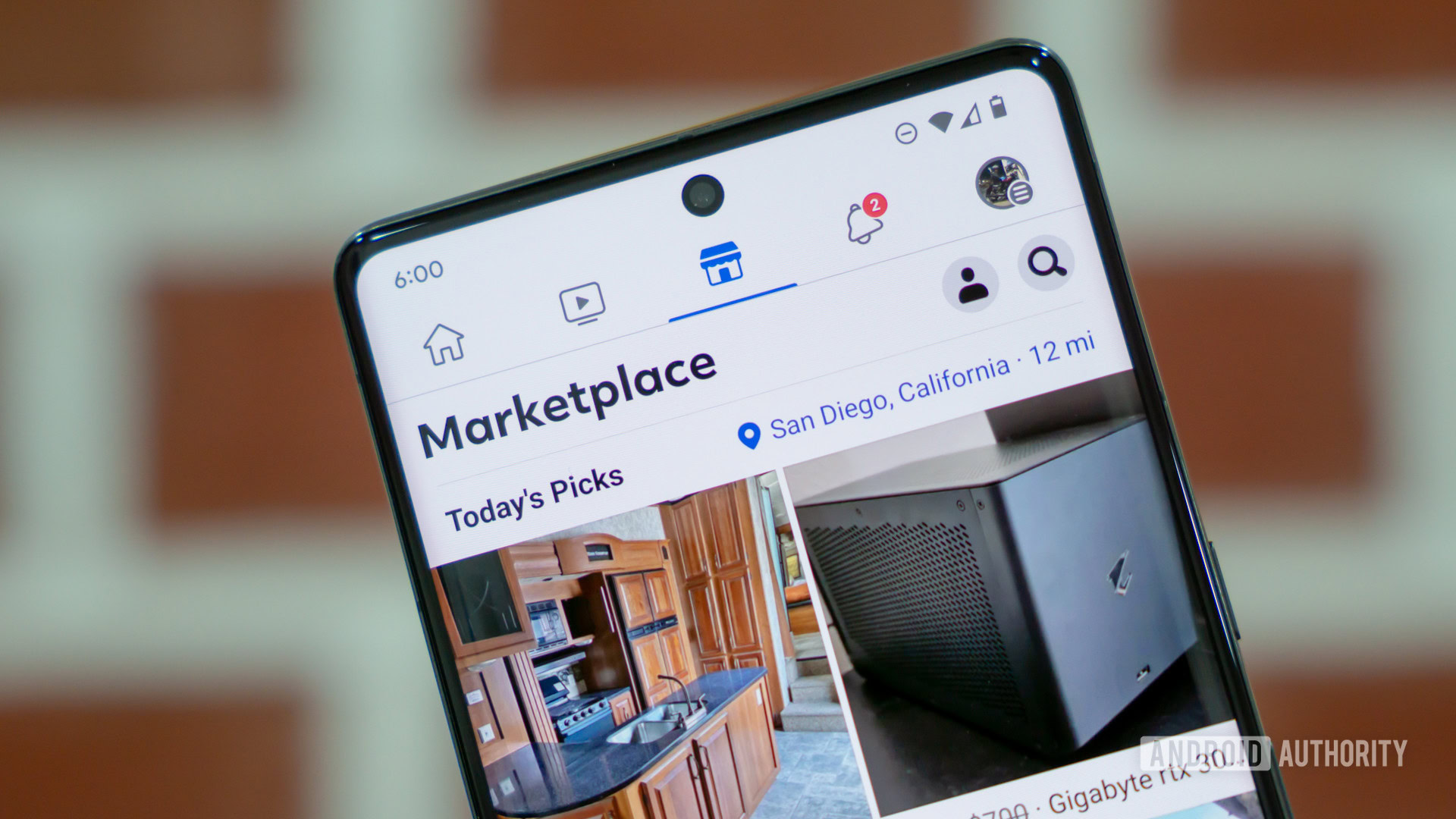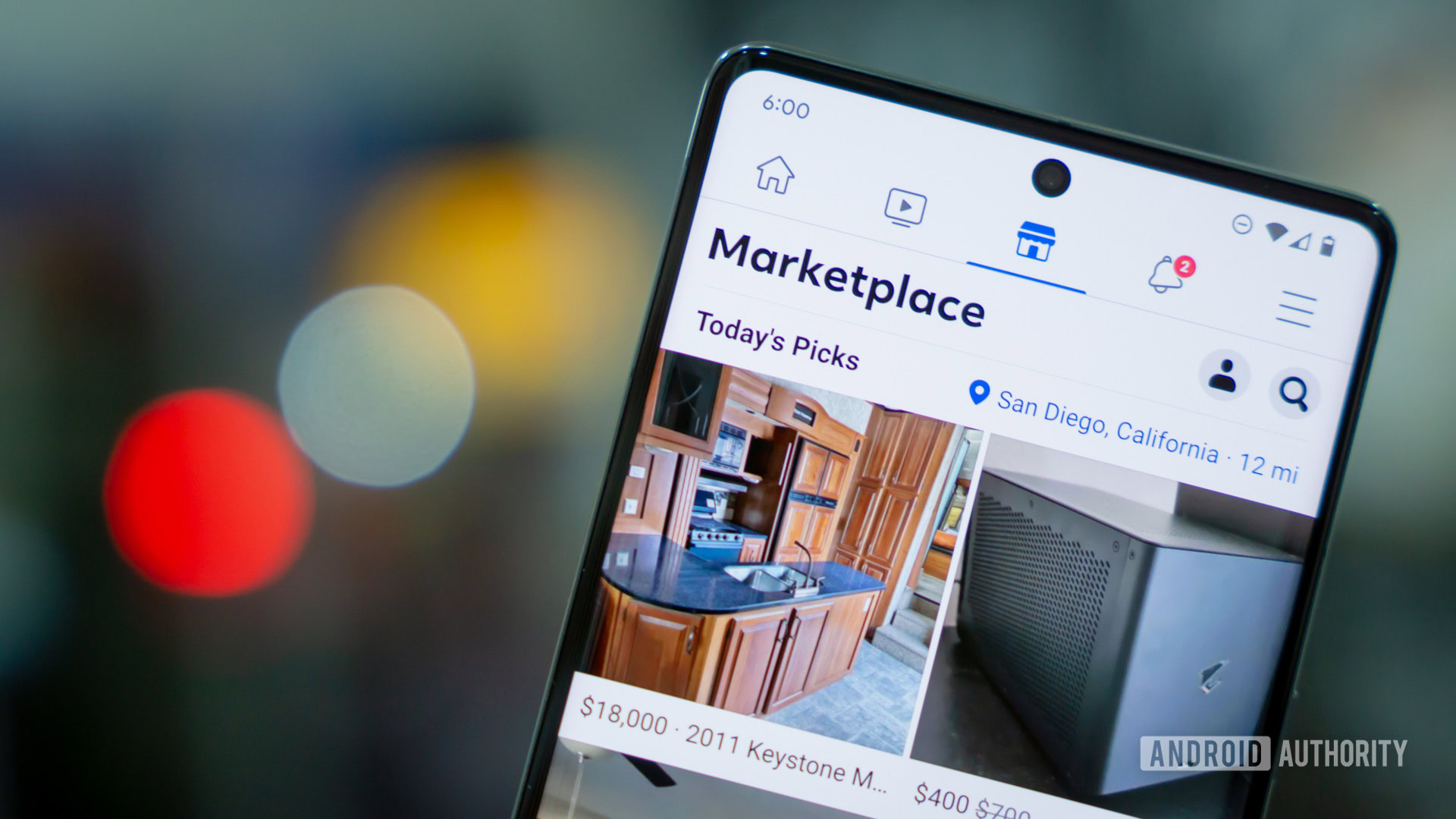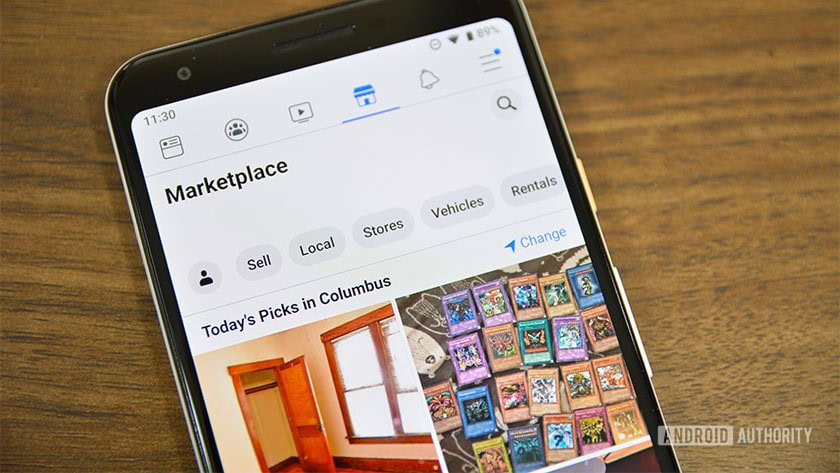Affiliate links on Android Authority may earn us a commission. Learn more.
What does "ISO" mean on Facebook?

New to the Facebook Marketplace? The flurry of abbreviations like ‘ISO’ might seem perplexing, and if you’re wondering what it stands for, this article is your go-to resource. We clarify not just what ‘ISO’ means within the context of Facebook, but also its wider significance. Moreover, we’ll demystify other common abbreviations you’re likely to encounter in the Marketplace, helping you navigate this digital platform with ease and confidence. And if your journey to the Facebook Marketplace is part of a quest to sell your old devices, you might be interested in our guide on trading in or selling old iPhones.
QUICK ANSWER
ISO on Facebook groups and Facebook Marketplace usually means "in search of." It indicates that the person is looking for a particular product, and is an invitation for others to make an offer if they have the same and want to sell it.
JUMP TO KEY SECTIONS
What does “ISO” mean on Facebook Marketplace?

“ISO” on Facebook Marketplace usually means “in search of.” It is used to put out a request for a particular product, inviting others to come forward and make an offer if they have the product and want to sell it.
For example:
- ISO iPhone X in working condition.
- ISO lightly used chair for office use.
- ISO tickets to the Taylor Swift concert.
In each of the above examples, ISO expands out to “in search of.” It indicates a want from the community member and is asking others who have the required goods to come forward and make an offer to sell.
What does ISO mean on Facebook Events?
Within the realm of Facebook Events, ISO (In Search Of) requests serve as a tool for attendees to connect over specific needs and enhance their event experience. Whether it’s finding event-themed items, seeking collaboration, or solving real-time challenges, ISO posts contribute to a dynamic and personalized event community. Here are some examples of Event-Specific ISO Requests:
- Ticket Search: Attendees looking for last-minute event tickets or those willing to sell or exchange tickets for specific dates.
- Example: “ISO one extra ticket for the concert this Friday night! Willing to pay extra. DM me if you have a spare or can’t make it.”
- Collaborative Planning: Individuals seeking partners for group activities, coordinating themed attire, or planning collaborative contributions to the event.
- Example: “Hey event-goers! Let’s coordinate matching outfits for the costume party at the festival. ISO someone to join me in a superhero duo. Comment or message if interested!”
- Event Accessories: Requests for event-specific accessories, props, or decor to enhance the overall theme and atmosphere.
- Example: “ISO glow sticks and LED accessories for the rave at the music festival. If you have extras or know where to get them nearby, hit me up!”
- Transportation and Lodging: Attendees seeking shared transportation options, recommendations for nearby lodging, or group arrangements for logistical convenience.
- Example: “ISO ride-share buddies for the road trip to the convention this weekend. I have extra space in my car and can chip in for gas. Comment if interested!”
- Real-Time Assistance:Urgent requests for help during the event, such as finding lost items, assistance with unexpected challenges, or on-the-spot problem-solving.
- Example: “ISO my sunglasses at the outdoor event! If anyone picked them up near the main stage, please let me know. Thanks!”
In essence, ISO on Facebook Events transforms event participation into a collaborative and community-driven experience, where attendees can fulfill their specific needs and create connections with fellow participants.
What else could “ISO” mean on Facebook?
Outside of the Facebook Marketplace, ISO has a few different usages.
As internet slang, ISO could also mean “in support of.” This is used to denote support and solidarity with different causes, movements, or events. When used within chat conversations, ISO could also mean “I’m still online,” though this usage is very low as most good chat apps have a dedicated indicator showing the other person as online.
On posts that are very factual in nature, ISO could also be a reference to the International Organization for Standardization. ISO is a global federation of nationwide standard-setting organizations. The organization basically sets standards that members can then follow.
On posts that make references to cameras, photography, and images, ISO refers to the light sensitivity setting of the sensor. You can learn all about ISO in photography in this article.
What are some common abbreviations in Facebook groups or Marketplace?

Navigating Facebook groups and Facebook Marketplace can be a daunting task, especially if you are not well-versed in internet slang. People tend to use a lot of abbreviations all around, and you won’t have the best experience if you have to stop and search for every short form that you see.
For that reason, we’ve compiled some of the most commonly used abbreviations that you will spot on Facebook or other online communities and marketplaces.
- AFAIK: This means “as far as I know.”
- ATM: This means “at the moment.”
- B/w: This often means “between.”
- B/c, bc: Either of these can be used to mean “because.”
- BK: This can often mean “broken,” but the exact meaning may change in the context.
- BNIB: This means “brand new in box.”
- BNIP: This means “brand new in package.”
- BNNW: This means “brand new, never worn.”
- BNWT: This means “brand new with tags.”
- Bump: A practice where a new comment is added to a post, pushing it to the top of a group or page. This is usually done if there have been several new posts in the group and the main post has gotten buried, or when the item hasn’t been sold for a while.
- BTW: This means “by the way.”
- Cross-posted: It means the listing has been posted in more groups. This can also take the following forms:
- LEW: It means “listed elsewhere.”
- LOMS: It means “listed on multiple sites.”
- PIOG: It means “posted in other groups.”
- DM: This means “direct message,” indicating that the person has either sent you a message or is inviting you to send a message. Check your Spam folders and message request folders, as messages from strangers can often land here instead of in your inbox.
- ETA: This means “estimated time of arrival.” It is usually used in the context of when people are meeting, and one wants to know how long it would take for the other to arrive.
- EUC: This means “excellent used condition.” The product has been used, but the condition remains excellent, with barely any signs of wear and tear.
- F, Following, Interested, or simply “.”: This is usually done to subscribe to a post and get notifications about it. The words used avoid interrupting the conversation while still indicating that the person commenting is interested in the product and wants to receive updates about it. These updates could be about price drops or a completed sale.
- F2F: This means “face to face,” indicating that the conversation be carried out in person.
- FCFS: This means “first come, first served.”
- Firm: This usually indicates that the seller is firm on their pricing and is not willing to negotiate.
- FTO: This means “for trade only,” meaning the seller will not accept money for the product and is just interested in exchanging it for another product. The price difference can be settled in cash.
- FTPU: This means “first to pick up,” indicating that the product will be sold to the first person who can pick up the product.
- FYI: This means “for your information.”
- GUC: This means “good used condition.” The product has been used, but the condition is good, with some normal signs of wear and tear.
- HMU: This means “hit me up.” This is usually an invitation to message the person if you are interested in what they are selling or offering.
- HTF: This means “hard to find,” indicating that the product is possibly rare or difficult to find in stores.
- HTH: This means “happy to help,” and is just used as a way to thank the person.
- ICYMI: This means “in case you missed it.” It is usually used to showcase an important update regarding the product that people may have missed reading.
- LMK: This means “let me know.”
- NBD: This means “no big deal.”
- Next or NIL: This usually means “next in line” and is commented on when the commenter wants to be contacted in case the deal does not go through to the first person who commented, “sold.”
- NH: This means “no holds,” indicating that the person will not be holding the product for a future deal and wants to complete the sale on a more urgent basis.
- No Box: This means that the box of the product is not available.
- NP: This means “no problem,” and is usually used to end a conversation. It could also mean “not packaged,” depending on the context.
- NR: This means “needs repair,” indicating the product is broken and needs to be repaired before it can be used. Repair responsibility would be on the buyer.
- NVM: This means “never mind,” and is used to dismiss and end the conversation.
- NWT: This means “new with tags,” indicating that the tags on the product are still intact.
- NOWT: This means “new without tags,” indicating that the tags have been removed even though the product is new.
- OBO: This means “or best offer.” This is an invitation to bid above the listed price, in case demand is high for the product.
- OOAK: This means “one of a kind.”
- OP: This means “original poster” or “original post”. This is referencing the person who made the post or the post itself, depending on the context.
- OT: This means “off-topic”, indicating that the people are going beyond the subject and scope of the thread or the group.
- PM: This means “personal message,” indicating that the person has either sent you a message or is inviting you to send a message. Check your Spam folders and message request folders, as messages from strangers can often land here instead of in your inbox.
- PP: This means “price please,” meaning that people want to inquire about the pricing of the product.
- PPU: This means “porch pick up.” The seller agrees to leave the item on their porch after arranging specific pickup details with the buyer. The buyer picks up the product and leaves behind the money. It could also mean “pending pickup,” where a buyer has completed the purchase or made a deal but has not actually picked up the product.
- SFS: This means “still for sale.”
- Sold: If the seller comments “sold,” the item has been sold and is no longer available for purchase. If a person other than the seller has commented “sold,” then it means that they are in negotiations for a sale (or want to negotiate), and a deal is expected to be reached. Deals can still fall through, so only believe the word of the seller, as they will only comment when the product has been completely sold.
- SSTP or SSTC: This means “sold subject to payment” and “sold subject to contract,” respectively.
- TY: This means “thank you.”
- WBU: This means “what about you?”, posing the same question to the other person.
- WTB: This means “wanting to buy.”
- YSK: This means “you should know,” and is used to point out additional information that someone should be aware of.
We hope this list of abbreviations is helpful in navigating the world of Facebook buy-sell-trade groups.